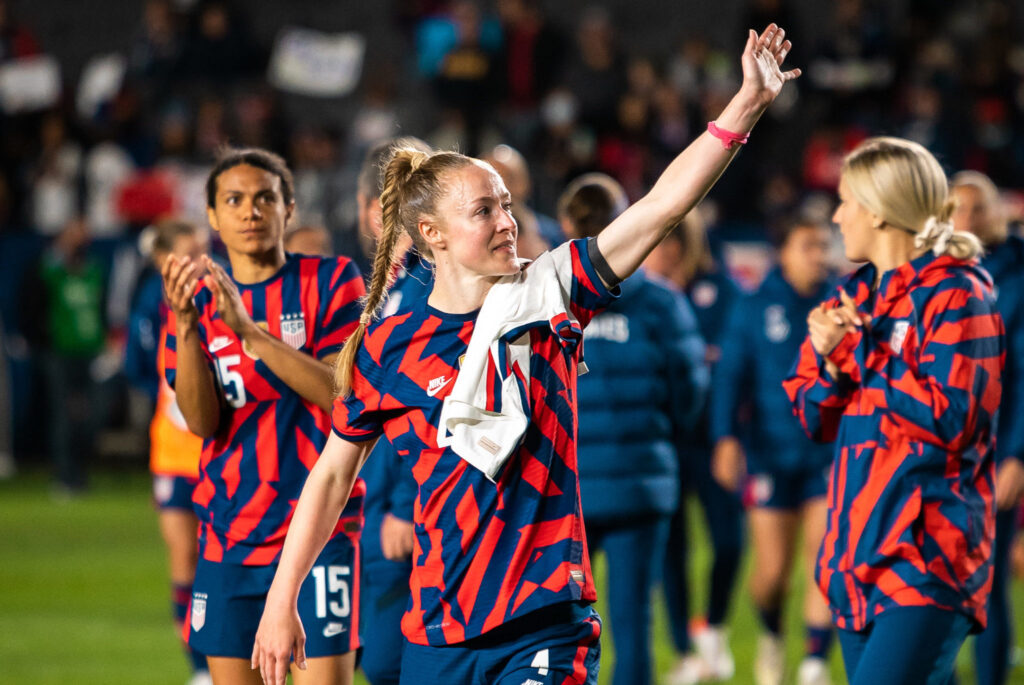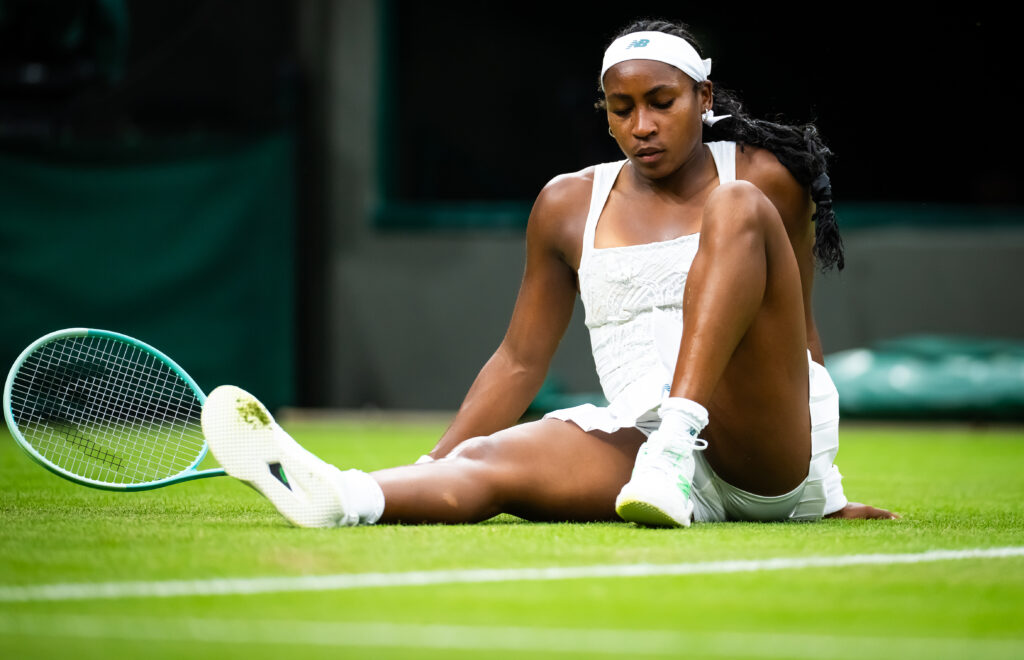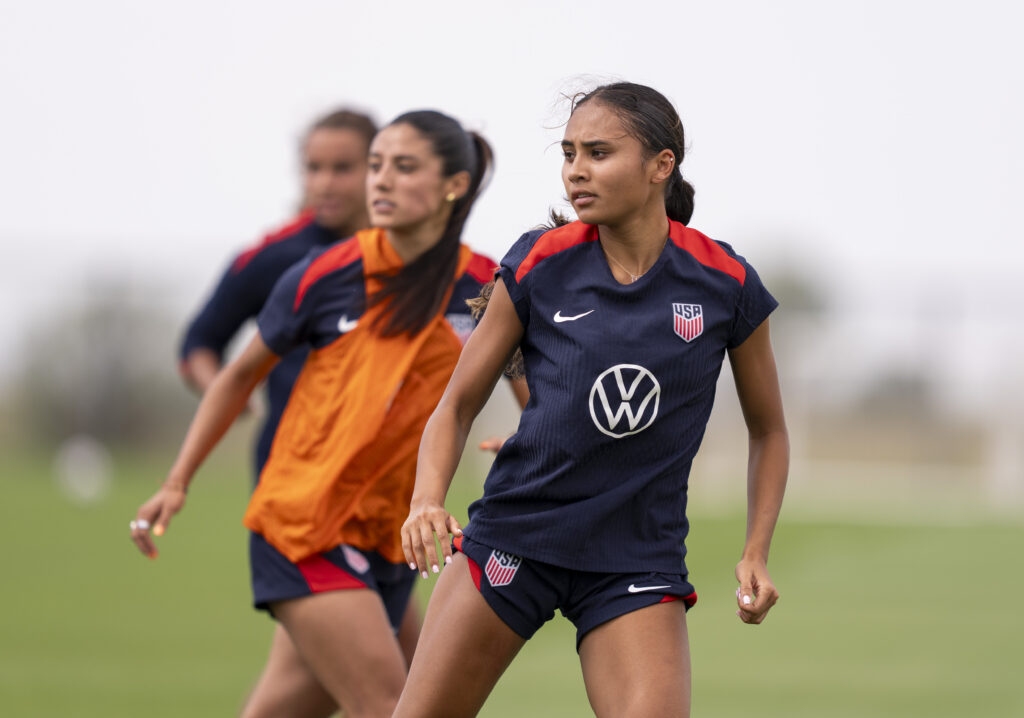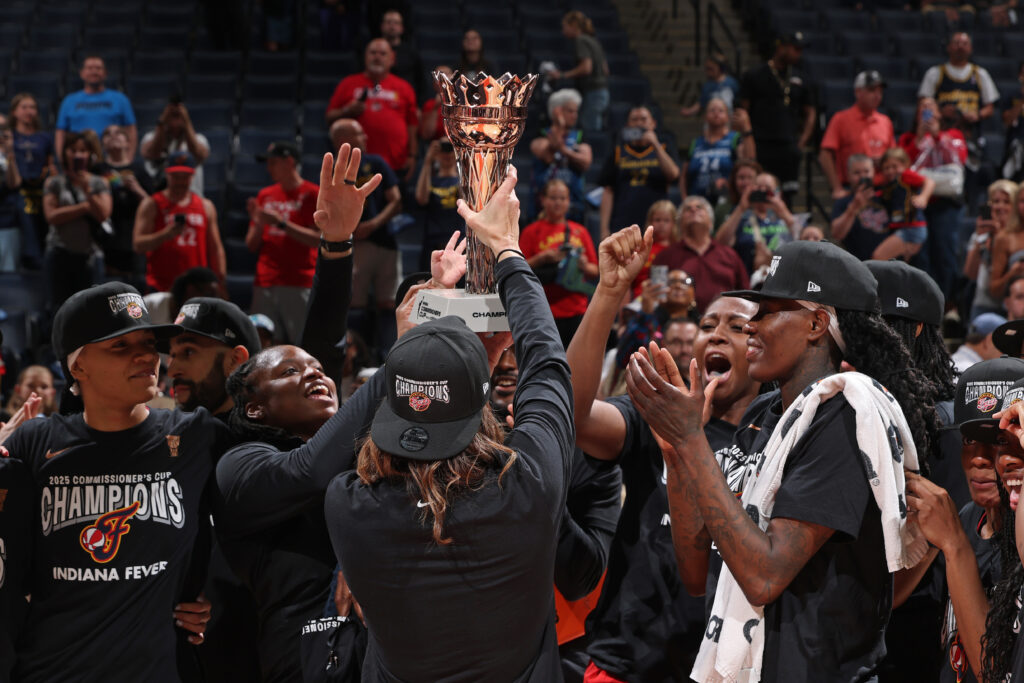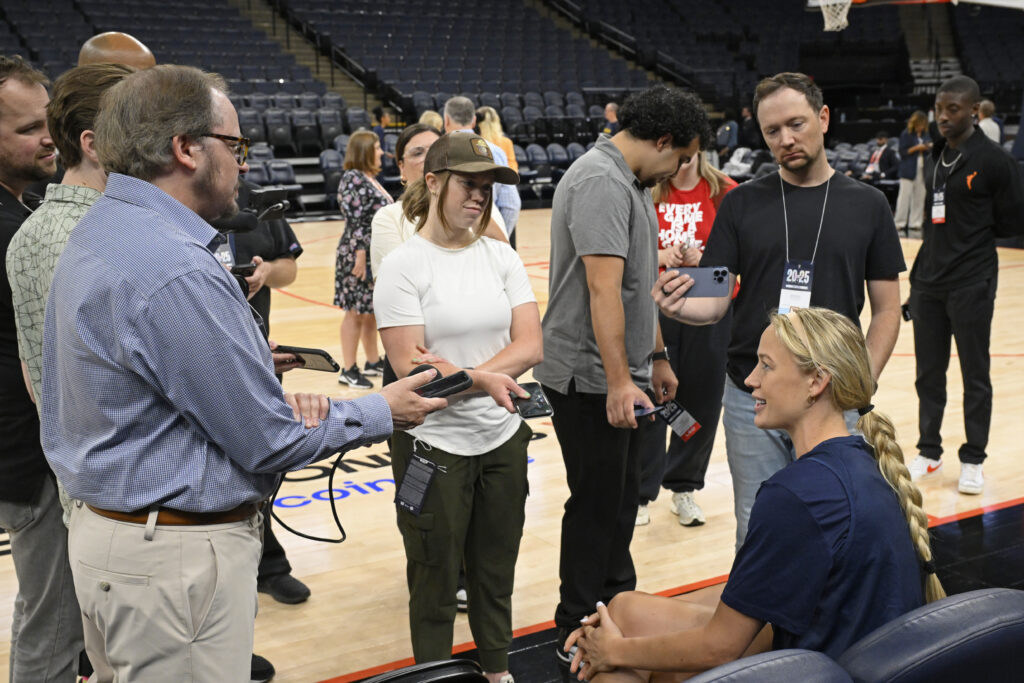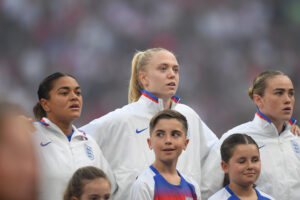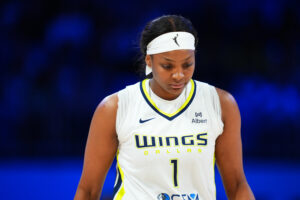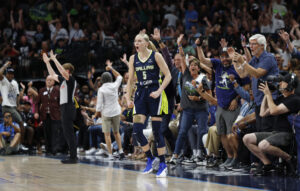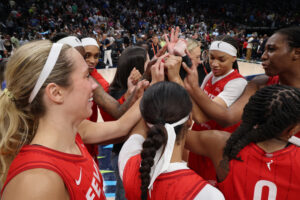Making her 2022 NWSL debut wasn’t the only thing U.S. women’s national team defender Becky Sauerbrunn was celebrating on Wednesday. Just as she was ready to return to the field for the Portland Thorns following a two-month recovery from knee surgery, the U.S. Women’s National Team Players Association (USWNTPA) and the U.S. Soccer Federation (USSF) announced a historic collective bargaining agreement Wednesday morning, guaranteeing equal pay for the men’s and women’s teams.
As USWNTPA president, Sauerbrunn has been an integral part of that journey, starting in 2016 when she and four teammates — Megan Rapinoe, Alex Morgan, Carli Lloyd and Hope Solo — filed a lawsuit against the USSF for gender inequity.
Now 36 years old, Sauerbrunn spent a lot of days wondering if an agreement would be reached while she was still playing.
“A lot of things had to come together and a lot of people had to work together,” Sauerbrunn said. “There were definitely days where I was wondering if it was going to happen sooner or later and luckily it happened sooner.”
History has been made….and It’s About Time. pic.twitter.com/lYYMDtgXav
— USWNT Players (@USWNTPlayers) May 18, 2022
The ratified CBAs, which will run through 2028, are the first in the world to include equal FIFA World Cup prize money for the men’s and women’s teams, long the sticking point in the USWNT players’ legal battle for equal pay. The teams will pool their respective bonuses from each World Cup and split it equally among them, a significant step considering how wide the gap in prize money is between the men’s and women’s tournaments.
The groundbreaking accomplishment would not have been possible without the former USWNT players who negotiated the first CBA, demanded better playing facilities and fought for gender equity throughout the last three decades. The fight started in 1995, when a group including Mia Hamm, Michelle Akers and Kristine Lilly sat out of Olympic training in protest of their pay.
“We wouldn’t be where we are today without all the generations of women’s national team players that came before that decided to fight for better everything,” Sauerbrunn saud. “So much credit needs to go to them, and I hope they feel pride in what they did because we wouldn’t be here without them.”
Orlando Pride coach Amanda Cromwell was training with the national team when players boycotted training camp in 1995. She was a young player fighting for her roster spot at the time.
Cromwell and Akers, now an assistant coach with the Pride, can fully appreciate the significance of Wednesday’s announcement, knowing where the group started 27 years ago. From the sideline of the Pride’s 2-1 win over the Courage on Wednesday night, Cromwell wore her “Equal Play” shirt, which she fortuitously brought with her to North Carolina without knowing the CBA would be announced while she was there.
“I love everything about it,” Cromwell said of the agreement. “It makes sense to have that kind of pay equity. It is a dream come true for all these players and the future of our sport is very bright, and I think we’re in good hands now with U.S. Soccer and the NWSL CBA. There’s a lot of positives happening in our country and around the world with our sport, and as a former national team player, I’m very thankful for that.”
USWNT and Gotham FC midfielder Midge Purce noted the non-economical parts of the agreement, like child care and safe work environments, as setting a standard for women in any workforce.
“I think it’s game-changing,” said U.S. national team defender Abby Dahlkemper. “It’s going to affect not only women’s soccer in the U.S., but throughout the whole world and will just continue to keep driving the standard and passing the torch down, and I think it’s exciting for the future generation.”
Part of that next generation is 21-year-old Sophia Smith, who has 15 caps and four goals so far with the USWNT and will get to reap the benefits of the CBA for years to come.
On Wednesday, she was filled with nothing but gratitude.
“I don’t think we can even begin to understand the hours that went into fighting for this, the players that came before us who have dedicated their lives to fighting for equal pay for not only themselves but for us and for the next generations that will benefit from it,” she said.
Jessa Braun is a contributing writer at Just Women’s Sports covering the NWSL and USWNT. Follow her on Twitter @jessabraun.
